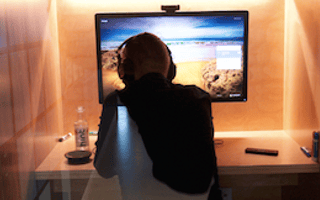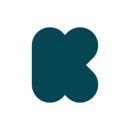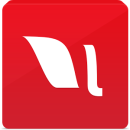A strong engineering team makes up the backbone of any successful startup.
These teams hire strategically, iterate often and encourage entrepreneurship in order to foster cultures that retain talent. We caught up with some of New York City’s top engineering teams to find out exactly how they build great culture internally. Here’s what they had to say.

Digital Ocean is a cloud-based Infrastructure-as-a-Service (IaaS) provider built for developers. The company allows dev teams to create, automate and manage infrastructure through API, floating IPs, shared private networking and team accounts. We caught up with Julia Austin, CTO of DigitalOcean.
How would you describe the culture of your engineering team?
The DigitalOcean teams are collaborative and highly functional, working in a largely distributed organization. We strive to be data-driven, and favor action over prolonged debate.
What are some of your team's best practices?
Our focus is on DigitalOcean and that starts with how we build our software to how our users experience what we deliver. We use an agile-esque process and conduct retros after each major milestone/release to ensure we learn from our experience and continuously improve. As with anything, data speaks volumes.
Does your team have any unique traditions?
Every year, DigitalOcean has "Shark Week" when we fly our entire company to NYC. We use this week to do everything from educating teams on new initiatives and technology to ensuring our distributed teams get quality face time - both work and play. In a further attempt to keep everyone up to speed as we grow, we do lightning demos every two weeks. These demos can be anything from a new product feature to a new tool or practice being developed. It's also a great way to get all of our staff comfortable with public speaking. Our executive team leads town halls monthly where we discuss company vision, challenges and opportunities.
What's an important lesson your team learned in 2016?
Putting good process and strong communication strategies in place has been critical to our on-going success as we head into an ambitious roadmap in 2017.
What qualities do you look for when hiring for your team?
Strong collaborators who know how to work independently and are comfortable with the startup life - work hard, have fun and move fast! Given the rapid pace of change in this industry, we really value smart risk-takers who can comfortably deal with ambiguity.

Kickstarter is a popular crowdfunding platform where people can get their projects off the ground. We talked with Aaron Suggs, Operations Engineering Manager and Chris Wright, Staff Engineer.
How would you describe the culture of your engineering team?
We’re interested in continuing to learn and sharing what we discover back with the community – we even recently we open sourced our Android and iOS applications. We also have an affinity for arts and culture. Part of what makes Kickstarter an interesting place to work is that an engineer’s side project is just as likely to be touring in a band playing the fiddle, as it is working on an open source project.
What are some of your team's best practices?
Our engineering team is especially inclusive of colleagues throughout different parts of the organization. We have a program called "GitHub for Poets" that teaches all Kickstarter staff, especially non-developers, how to contribute to our codebase and engineering processes. As a result, our HR team posts new jobs and our Customer Support team adds helpful tips using the same development processes the engineers do.Making our engineering workflow transparent and inclusive has also helped our whole organization work together well.
Does your team have any unique traditions?
We have a neat tradition of Lunch Roulette: an algorithm that groups employees into diverse lunch parties. It was a hack day project by our data team. The algorithm optimizes for grouping people from different teams, and experience levels, so you're talking with folks you might not interact with day to day. And a paid lunch with colleagues is a great way to try new local restaurants. Here's our engineering blog post about Lunch Roulette. Aside from that there are always interesting events happening in the office – we hold an annual music recital, there’s a D&D campaign that’s been running for more than four years, and occasionally we’ll all pitch in to make (or eat!) staff dinner.
What's an important lesson your team learned in 2016?
Kickstarter: It’s really important to encourage engineers to learn from each other. The industry is coming from a mindset where the best engineers are those who can solve the most challenging technical problems, but we’ve observed how important it is for people to make themselves available when their peers need help. Our team is embracing our motto of “Always Be Learning.” At Kickstarter, that learning can take many forms, from pair programming on a tricky bug, to presenting a lightning talk about a new framework you’re learning, to forming reading group for academic papers.
What is your team focused on in 2017?
Kickstarter: We want to make it easier for creators to launch and run a successful project. Part of this is around improving the tools that creators use when they create their project, but we’re also thinking about entirely new types of projects in 2017. Stay tuned.
What qualities do you look for when hiring for your team?
Kickstarter: We’re interested in continuing to build a diverse team that brings a broad set of interests and perspectives. It’s great if applicants have an interest in arts and creative culture. Our team is made up of musicians, poets, bakers, and more. We find these interests are usually a good signal that people care about Kickstarter’s mission.

Livestream is bringing the ability to stream high-quality live video to the masses. Dave Yeu, VP of Engineering, let us in on their engineering culture.
How would you describe the culture of your engineering team?
In a word, diverse. For starters, we have a multicultural body of engineers, and there are many different native tongues and backgrounds in play. On top of that, there's a range of skills, experiences, and personalities on offer, and this gumbo is one of our greatest strengths.
What are some of your team's best practices?
Teams at Livestream have a lot of autonomy, in both their process and their stack, and I believe that's an overarching best practice that has nurtured many others. Underneath that umbrella, some tactical examples include holding post-project retrospectives, tracking velocity, writing and distributing post-mortems, and emphasizing monitoring.
Does your team have any unique traditions?
We had our inaugural Hack Week last fall, where everyone took a full week to work on their own projects, and the results were more than impressive. It's not quite a tradition yet, but we hope to make it one.
What's an important lesson your team learned in 2016?
It's hard to speak for everyone, but I would say that we learned how to focus on the product. All of the different pieces of the product process — ideation, planning, execution, delivery, communication, and marketing — came together for several projects, and as a result, we're getting faster and shipping more.
What is your team focused on in 2017?
There's a great backlog shaping up for every team, and we expect vast improvements to our video player, more flexibility for producers to manage their content and its distribution, and infrastructure upgrades.
What qualities do you look for when hiring for your team?
We look for people who are talented, whether at the start of their career, or trailing a long list of accolades. We try to assess that by asking them to tackle problems, for example by writing code or driving a specification for a new feature.Culture fit is also very important. We want teammates who will level up their peers, add a unique viewpoint, and allow everyone of us to really enjoy our time at work.

Intersection works with governments, citizens and brands to use technology to improve life in cities around the world. Jason Shao, Head of Engineering, answered our questions.
How would you describe the culture of your engineering team?
Intersection: The engineering culture here at Intersection is one of autonomy and invention. Motivated individuals have the power bring the changes they want to the engineering organization. Leadership focuses on overall alignment of projects but leave it up to individual teams to pick the tools, processes, and approaches that will enable them to be most successful. We strive for a culture of continuous peer-to-peer learning and improvement. Our team is made up of engineers from a variety of backgrounds, from those with a traditional Computer Science education to people who have crossed over from careers in music, art, or literature. We’ve found that bringing people from different backgrounds and cultures creates a breeding ground for innovation and non-conventional thinking, a key ingredient in delivering high customer value across products.
What are some of your team's best practices?
We like to do things that have not been done before and so we’ve found that there’s typically not a one-size-fits-all approach; that new best practices will emerge in each unique situation. People who succeed here are often "T-Shaped," or an individual who has deep knowledge and skills in a particular area of specialization, along with the desire and ability to make connections across disciplines. We have a culture of retrospective and blameless postmortems, where we identify the systemic and environmental factors that led to a particular situation and how we can recognize and correct those behaviors in the future.
Does your team have any unique traditions?
Our team has a host of traditions to help us work smarter, learn from each other, and celebrate our wins. On a monthly basis, the entire team gets together to share project updates, new tools, and bestow peer-to-peer awards. The Trophy of Win is given to an engineer who has gone above the call of duty to accelerate the team and others around them, the Lab Coat of Learn is bestowed to someone who has contributed to education and/or mentoring of an individual or team, and the Walkie of Talkie is an excellence in communication award.
In 2016 we launched an exciting new tradition called Communities of Practice — informal yet structured and company-supported chapters dedicated to sharing a concern, a set of problems, or a passion about a particular topic, like Machine Learning + Data Science, Edge Tools, and Sound Synthesis. Regularly scheduled meetings among these groups are comprised of collaborative projects, learning, explorations, and conversations. They not only put people in touch with like-minded colleagues they might not otherwise work with, but provide an environment for accelerated learning, to build on existing knowledge, and to innovate and create new ideas —always a plus in our business!
What's an important lesson your team learned in 2016?
In 2016, we learned that our team works best when every individual has a clear and strong sense of purpose and mission. That means having a kickoff at the start of every new project where all stakeholders are present and participating so all team members are aligned on a specific goal and purpose. As a growing company with many projects and products, we took new steps in 2016 to share what we work on with our entire organization, many of whom do not have a technical background. We now have a quarterly product and engineering showcase where teams have the chance to share their projects and learnings across the entire company...imagine a science fair on steroids, with hands-on demos from both teams and individuals.
What is your team focused on in 2017?
2016 was an exciting year where we saw the fruits of our labor begin to transform city streets with our LinkNYC project. It was a year where we solidified our newly built network, infrastructure and platform technology. In 2017, we’re focused on refinement and product improvement, including new and improved native applications that respond to user demand. Feel free to stop by your local Link to keep up-to-date!
What qualities do you look for when hiring for your team?
The most important quality is what we refer to as ‘grit.’ Having the technical chops is table stakes. We look for individuals who, in addition to being technically keen, exhibit the courage to look at things differently, who show resolve, perseverance, and strength of character. It's most important for candidates to come in open minded and not be glued to a specific technology. Our team doesn’t rely on a single method or technology to solve every problem, but an arsenal depending on the unique challenge. You can think of this as being a swiss army knife, using the right tool for the right job. Being able to learn, adapt, and pick up new technologies is a strong indicator of someone who will thrive within our teams and organization.
Images via featured companies and Built In.






